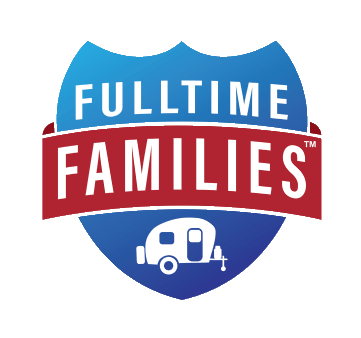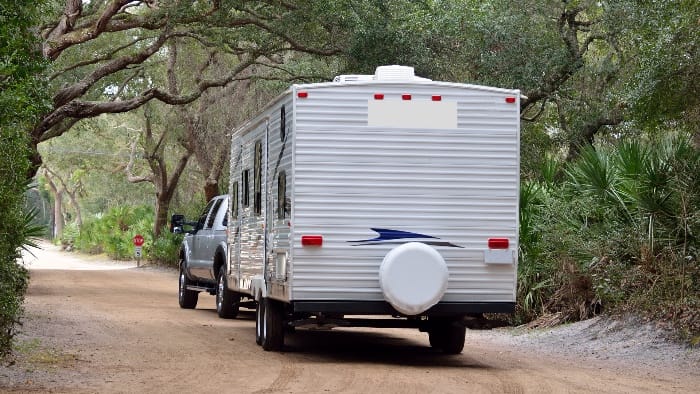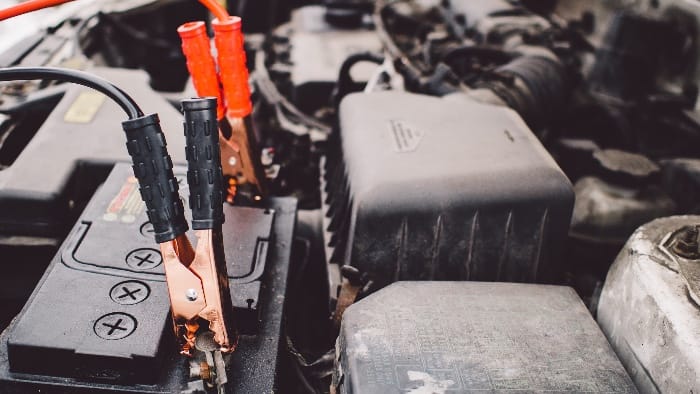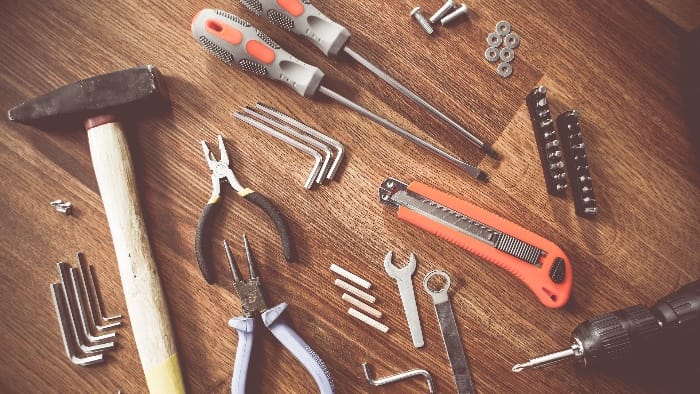One of the biggest concerns of people getting ready to hit the road full time is whether or not they can do so safely. The answer? Absolutely, you can!
Living in an RV and traveling full time is—for the most part—no less safe than any other lifestyle. The trick is to head into your adventure fully prepared. By doing this, you set yourself up for success and help prevent disasters from happening.
Of course, being prepared means knowing what you need to do in order to prepare. This is where we step in. As seasoned travelers, we like to think we’ve learned a thing or two about living and traveling safely in our RVs.
Here are our top tips.
Proper Tow Vehicle and Hitch
The very first step you absolutely must take toward travel safety is making sure your rig is safe.
If you’ll be towing a bumper-pull or fifth-wheel, this means making sure your trailer is well within the tow capacity of your truck, with enough capacity left over to account for your things, water in the tanks, and of course the people who will be riding in the vehicle. Additionally, those who are towing will need to make sure their hitch is rated for a trailer of their size.
Weight distribution is a must for those pulling bumper-pulls, and everyone should have their hitch installed by a professional and learn how to properly hitch up from the same individual. When it’s too much of a load, you should consider opting for a heavy equipment transportation because it will save you a lot of headache down the road.
For those in motorhomes, many of these same rules apply to towing a car behind you. Additionally, no matter what type of rig you have, you will want to carefully watch the amount of stuff you bring into the motorhome in order to stay within your RV’s weight capacity. This is often lower than you might imagine.
Distributing Weight
In addition to keeping the weight in your RV under the cargo capacity listed by the manufacturer, you will also want to make sure the weight in your rig is spread out evenly. This will keep things balanced and will help prevent blowouts and other unfortunate issues along the way.
Tires
Good tires are incredibly important. You will need to make sure your tires are always 100% good on both your RV and your tow vehicle (or your “toad”, if you have one) in order to ensure you are driving safely. Tires should never be used if they are more than six years old, and the tires provided by the RV manufacturer should always be changed before hitting the road.
Purchasing the highest-ply tires available is always a good idea, and watching for tread wear—especially uneven tread wear—should be a habit.
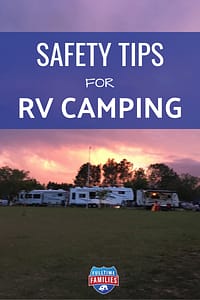
Good Insurance
Insurance is a must when you’ll be on the road fulltime. What many people don’t realize is that many RV policies don’t cover fulltimers, and even those that claim to don’t necessarily offer the coverage you and your family need for your specific situation.
Be sure to click here and learn all your options and really shop around for a policy that fully covers you during your adventures.
Roadside Assistance
In addition to insurance, you will definitely want to have at least one roadside assistance plan. Many people even have multiple plans in order to ensure they are taken care of, no matter what trials may come their way.
A good roadside assistance program will tow both your daily driver and your RV to a nearby shop and/or campground should you break down. They will also show up to change a tire, give a jump, and a variety of other things. This is another thing you will want to shop around for.
Spare Tire, Jumper Cables, and Extra Fuel
Even with more than one roadside assistance plan, it never hurts to be prepared to fix vehicle problems on your own. For this reason, we recommend keeping a good spare tire for both your daily driver and your RV on hand at all times.
Additionally, you will need a jack and the tools required for changing a tire, some jumper cables, and extra fuel. These things could be enormously helpful should you find yourself stranded in the middle of nowhere without cell reception.
Emergency Kit
Besides the items mentioned above, many travelers like to keep an emergency kit in their RV. This is stocked with everything they might require should they need to evacuate the RV at a moment’s notice as well as things to help them survive should they become stranded.
A good kit might include:
- Hand-crank flashlight
- Hand-crank weather radio
- Portable phone charger
- Emergency blankets
- First aid kit
- Non-perishable snacks
- Bottled water
- A way to filter water
- Money and credit cards
First Aid Kit
As mentioned above, your emergency kit should include a first aid kit. You might also choose to keep a second first aid kit on hand for easy access. Either way, you will want to have the following items in your RV first aid kit:
- Adhesive bandages
- Butterfly bandages
- Gauze
- Antiseptic creams and ointments
- Sterile wipes and rinse solutions
- Pain and anti-inflammatory, anti-diarrhea, and antihistamine medicine from the best-rated
- Hydrocortisone cream
- Tweezers
- Scissors or knife
- Safety pins
- Eye drops
- Triple antibiotic ointment
- Moleskin
- Hand sanitizer
- Duct tape
- Super glue
- Aloe vera
- Sunscreen
- Epipen (if applicable)
- Prescription medicines (if applicable)
Stay Weather Aware
Severe weather can be especially scary when you’re living in an RV. For this reason, it’s important to stay weather aware, and always stay prepared for bad weather.
Here are some things you can do to stay ahead of the weather:
- Travel away from storms.
- Locate storm shelters in storm-prone areas.
- Be aware of flooding potential.
You’ll also want to download at least a couple of the following apps:
Quality Tool Set
When you live in an RV, you never know what might break. Most of the time, the problems that arise aren’t a safety issue, but more of an annoyance and something you need to fix eventually. However, there are some things that can create hazardous situations and may need fixing right away.
For this reason, a good tool kit with a wide variety of tools is a necessary thing to carry with you throughout your travels.
Trucker’s Map or GPS
Driving around the country with a larger-than-average vehicle can, in and of itself, be a little bit unsafe if you don’t take the proper precautions. Knowing and staying within weight guidelines and ensuring you are properly hitched up with good tires are all a part of keeping you and your family safe on the road. However, these are just the start.
Additionally, you will want to plan your routes a bit differently than you might in a car. Low clearances and steep mountain grades can make for some damaging and potentially dangerous situations. Fortunately, a trucker’s atlas and/or GPS can help you avoid those things.
Fire Evacuation Plan
An unfortunate truth about RVs is the fact that they catch fire quite easily. Therefore, it is crucial that you and your family have a fire evacuation plan. Help your kids figure out at least two different routes out of the RV from their sleeping spaces, and decide on a meeting place such as the recreation hall or park office.
Practice evacuating for a fire a few times to make sure the kids know how to work emergency escapes, and refresh their memories every few months to ensure they still know what to do in case of a fire.
Test Alarms
Obviously, you will want your fire alarm in working order if you want that evacuation plan to do anything for you. Additionally, you will want your carbon monoxide detector in tip-top shape. Be sure to test these at least every six months, and replace the alarms and/or batteries as needed.
Thinking about all the things that could potentially go wrong while traveling in an RV can be scary. However, as long as you take the steps above, you will be as safe as possible during your great RV adventure. Now stop worrying so much about what bad things might happen and get out there and find out the good things that absolutely will happen!
>> Want to learn more about Fulltime Families Membership? Head here for more details and learn more.! <<
